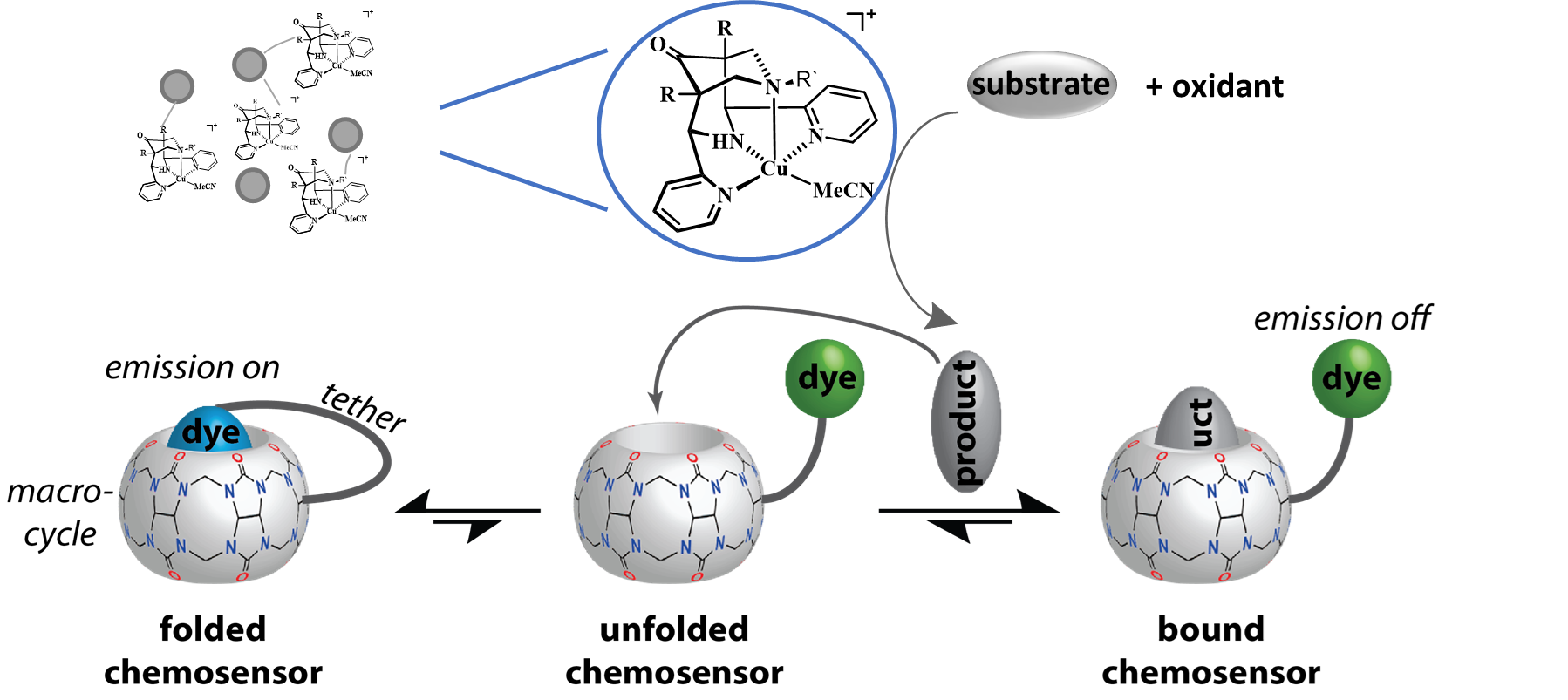Artificial Enzymes and Receptors
Enzymes are among the most efficient known catalysts. However, they are highly dependent on their environment, which complicates their integration into industrial processes. One potential solution is synthetic enzyme models. These models are much simpler in structure than biological enzymes, making them more resistant to various solvents and reaction conditions and easier to handle. However, the simpler structure results in lower reactivity and selectivity. Nevertheless, these enzyme models are of interest for the conversion of small organic molecules. In various projects, we therefore investigate different aspects of these synthetic enzyme models – from synthesis and characterization to immobilization and their use in reactors.

Ongoing projects:
- Synthesis and characterization of Cu- and Fe-based metal complexes and substrate screening/optimization of reaction conditions in homogeneous catalytic reactions
- Immobilization of the metal complexes on various particles for use in flow catalysis or in diverse reactors
- In cooperation with Frank Biedermann (INT): Use of chemosensors for reaction control of homogeneous and heterogeneous catalytic reactions
